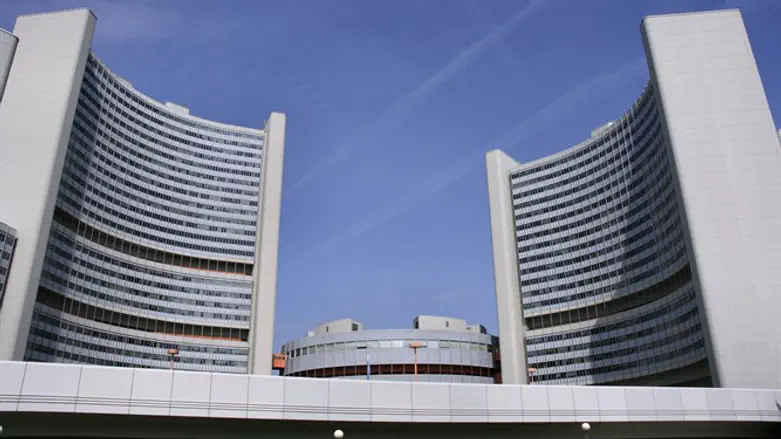
The International Atomic Energy Agency (IAEA), the UN's nuclear watchdog, said on Friday it will hold a special meeting on Iran's nuclear program next week, AFP reports.
The meeting of the IAEA's board of governors would be held "on 10 July at 14:30," an IAEA spokesman said.
The meeting comes days after Tehran breached one of the limits set in a 2015 deal with world powers.
Earlier, the US mission in Vienna said in a statement that the American Ambassador to International Organizations Jackie Wolcott had requested the special meeting to discuss the IAEA's latest report on Iran, issued earlier this week.
In it, the IAEA confirmed that Iran had breached the limit of 300kg for stockpiles of enriched uranium as stipulated under the 2015 Joint Comprehensive Plan of Action (JCPOA).
The US statement described the news of the breach as "concerning".
"The international community must hold Iran's regime accountable," the statement added.
Following the release of the IAEA report, Iranian President Hassan Rouhani announced that as of Sunday, Iran will begin breaking another key limit set in the JCPOA, which restricts the enrichment level of its uranium stockpile to 3.67 percent.
Iran has said the breaches announced so far would be reversible "within hours" if progress is made in providing Iran with relief from US sanctions.
The US was originally a party to the JCPOA but in President Donald Trump withdrew from the accord in May 2018 and imposed crippling sanctions on the Iranian economy.
Iran’s announcement on breaching the nuclear deal follow a meeting last Friday with European, Russian and Chinese officials to discuss ways to save the 2015 nuclear following the US withdrawal.
Iran’s envoy to the meeting in Vienna said that European countries had offered too little to persuade Tehran to back off from its plans to breach limits imposed by the deal.
The EU earlier this year introduced a trade mechanism that would bypass US sanctions on Iran, in a bid to save the 2015 deal, but Iran has rejected that mechanism thus far.
(Arutz Sheva’s North American desk is keeping you updated until the start of Shabbat in New York. The time posted automatically on all Arutz Sheva articles, however, is Israeli time.)